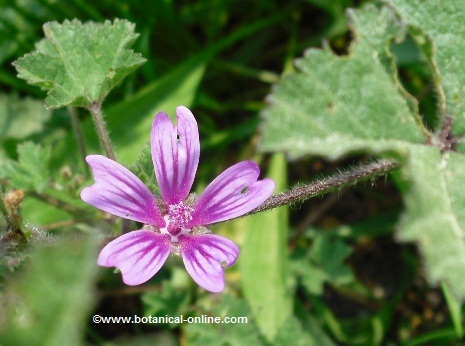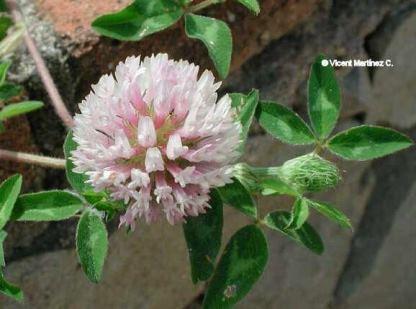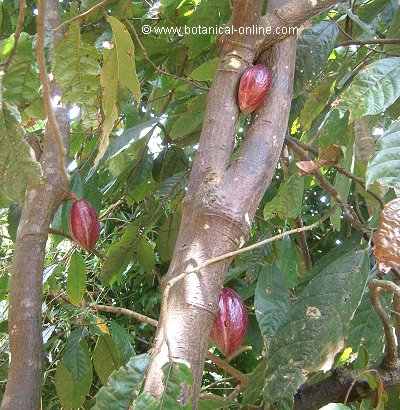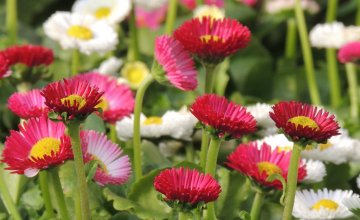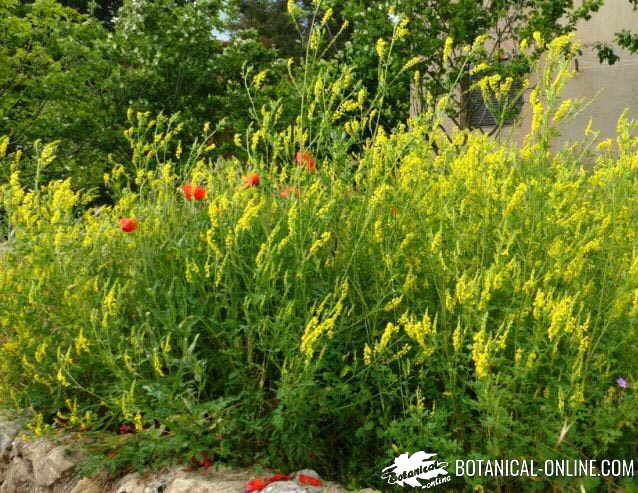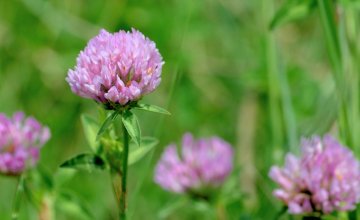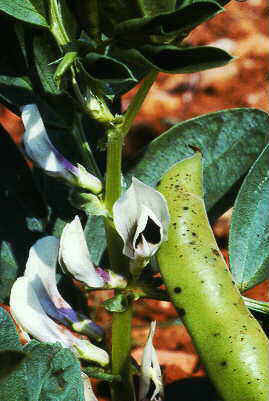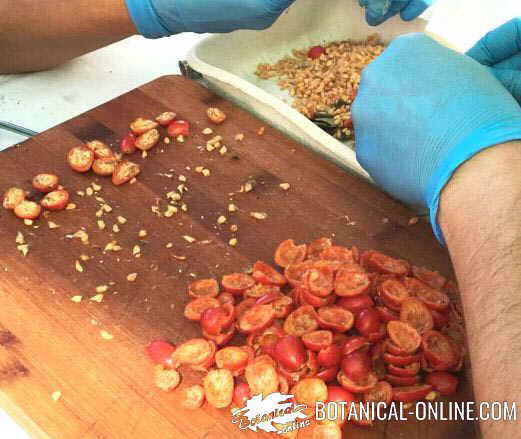Contents
Health benefits of agrimony
The medicinal capacity of agrimony is mainly due to its richness in catechists tannins and ellagic tannins. Tannins are mainly astringent, anti-inflammatory and vulnerary.
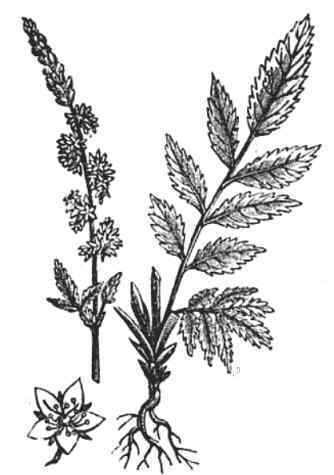
A drawing of agrimony with a detail of the flower
Preparations with leaves, flowers and rhizomes of agrimony for internal use
Agrimony for digestive diseases
Tannins are useful in the treatment of the following abnormalities:
- Diarrhea: The astringent properties of agrimony can be used in cases of diarrhea. (Infusion of a teaspoon of dried leaves and flowers per cup of water for 15 minutes. Drink two cups a day)
- Stomach pains: In case of intestinal colic, with severe abdominal pain, the above remedy is very useful.
- Indigestion: The anti-inflammatory capacity of tannins, flavonoids and acids is extremely effective in the treatment of many gastrointestinal problems. Liverwort preparations are capable of solving problems of poor digestion in the presence of flatulence, heartburn, or gastritis. (Infusion of a teaspoon of dried flowers per cup of water. A couple of cups a day.)
Liverwort preparations are considered to have well antiulceric properties.
Tannins to diminish urine production
For its astringent properties it is also useful to decrease the production of urine (Decoction of 10% of dry leaves for 5 minutes. Take 10 tablespoons per day along the day)
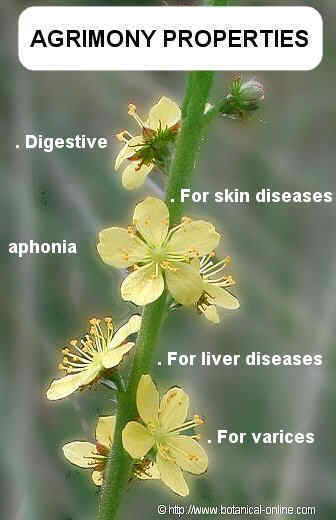
Main curative properties of agrimony
Agrimony is well suited for liver
Agrimony has always been considered a good remedy for the liver. Agrimony has choleretic properties, provided by quercetin, kaemferol, apigenin and caffeic chlorogenic, vanillic and ursolic acids. Thus, this plant is capable of increasing bile juices, so that, it does not only improve digestion but it also helps the liver to perform its function.
Chlorogenic acid, ferulic and caffeic acid also possess cholagogue properties, that’s to say they favor the expulsion of bile by increasing the contractions of the gallbladder, so they contribute to a better digestion of food (Drink a few cups a day of the infusion of one teaspoon of dried flowers per cup of water after meals)
In this sense, agrimony may help people who have problems with liver failure, which show hunger problems because of lack of gastric and bile juices.
We must take into account that this plant has been considered a good stomach tonic and anti-anorexic and even suitable for people with hepatitis. (Drink a few cups a day of infusion of one teaspoon of dried flowers per cup of water after meals) (50 drops of fluid extract daily in three divided doses. It can be obtained in pharmacies and health food stores)
The same remedy has been long used to treat jaundice.
Rinses, washes, gargles and compresses with eupatoria for external use
In addition to having anti-inflammatory and vulnerary properties, agrimony contains 25 antibacterial, 10 fungicide and 10 analgesic components. All these components make it a very useful plant as an effective remedy for the external treatment of diseases of the skin and mucous membranes.
In external use, we can mention the following main anomalies:
- Sore throat: In case of tonsillitis, Agrimony helps remove pus, reduces swelling and decreases pain. (Decoction of a teaspoon of dried leaves per cup of water for a couple of minutes. Sweeten it with honey and make gargling with the liquid still hot) (Pour 70 drops of fluid extract per liter of water. Make gargling with this preparation)
- Pharyngitis: When pharynx is inflamed, above remedy can be very effective.
- Sinusitis: Agrimony is a good remedy for the improvement of sinusitis. (Pour 60 drops of fluid extract per liter of water. Absorb part of the liquid through the nose until it reaches the mouth and expel it outside. Do not swallow.)
- Hoarseness: Agrimony gargles, rich in tannins, have been used by professional voice to improve it, providing more power and avoiding hoarseness. Singers, announcers, presenters, teachers, vendors, etc. can use this remedy extensively to strengthen their vocal cords and avoid having low voice. (Infusion of a tablespoon per cup of water. Make gargling)
- Aphonia: The same previous treatment can help restore the voice.
- Mouth sores: To heal sores in the mouth, make a rinse with the above decoction.
- Gum and teeth: If inflamed or bleeding gums (gingivitis), the previous rinses help to reduce swelling and prevent infection. This same remedy is also effective as a mouthwash after you wash your mouth with toothpaste.
- Injuries: Agrimony is an excellent vulnerary for healing wounds, scratches, cuts, punctures, minor burns, and so on. (Crush some fresh leaves and apply them as a compress on the wound)
- Shock and trauma: In case of bumps, bruises, sprains, muscle tears, tendinitis, etc (Pour 70 drops of fluid extract per liter of water. We will apply the previous liquid through a pad or gauze over the affected area.)
- Varices: The anti-inflammatory properties of this plant will help reduce the size of varices, while vulnerary properties will facilitate the healing of varicose ulcers. (Dry washes of the plant boiled in wine – Boil 200 gr. Of the dried plant in a liter of wine for 5 minutes. Leave to infuse for 5 minutes.) (Decoction of 10 teaspoons of dried flowers and leaves per liter of water for 30 minutes. Apply the liquid to the area with varicose veins)
- Dermatitis: In case of dermatitis, using agrimony helps improve skin condition and significantly reduces the unpleasant feeling of itching. (Decoction of a tablespoon and a half cup of water for 5 minutes. Apply a compress soaked with the liquid to the affected area)
- Conjunctivitis: Eye drops prepared with this plant are very useful in the treatment of conjunctivitis.
How safe is agrimony?
Consult: Agrimony toxicity, agrimony side effects, agrimony contraindications
![]() More information on agrimony.
More information on agrimony.

